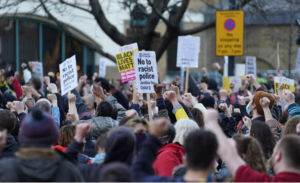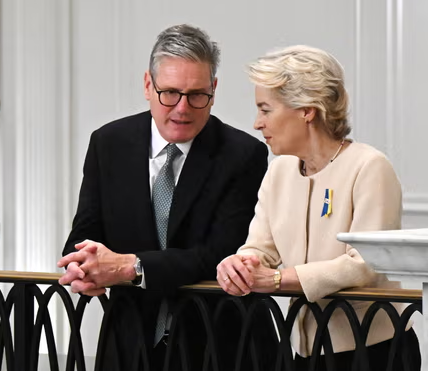“Controversy in Policing: Can Strip-Searching Children Be Effective? Concerns Over Misuse Persist”_l
A report by the children’s commissioner says nothing is found in half of strip-searches of children and its use has a racial disparity. Can its implementation ever be balanced?

When is it reasonable, necessary and proportionate for agents of the state, such as police officers, to take actions that are likely to leave a child traumatised?
There is little dispute that compelling anyone, let alone a child, to expose their intimate body parts against their will to a stranger causes real emotional pain. But police believe strip-searching can be a useful tool.
The police believe the use of “plugging”, the secretion of illegal drugs, increased with the growth of the “county lines” phenomenon, which saw children used as mules to move drugs from big cities to smaller towns.
Young people have been lured or threatened by drugs gangs who believe police will be reluctant to target people aged under 18.
Monday’s report from the children’s commissioner found that in almost nine out of 10 strip searches, officers gave suspicion of drug possession as the reason.
A spokesperson for the National Police Chiefs’ Council (NPCC) said: “Where there are reasonable grounds to suspect that a child is carrying unlawful items secreted on their person (eg drugs or weapons) and the items will not be voluntarily surrendered, then to ensure the child is not exposed to serious harm by allowing continued possession, a strip search may be appropriate.
“The police are under a positive duty to protect life and prevent an individual coming to serious harm or being subject of degrading treatment through the unlawful acts of another, eg child criminal exploitation.
“To leave children in possession of illegal items that could threaten their life or safety may be in negligent breach of the child’s human rights.”
The report says that when young people are strip-searched, nothing is found in about half the cases. In comparison, evidence of a crime is found in about 25% of stops and searches on all ages, the police inspectorate reported last week.
Police use of strip-search powers carry an assessment, formal and informal, of the benefits versus the risks. After the Child Q scandal erupted in 2022, it was clear that police had been getting that balance wrong.
The report also highlights a racial disparity: black children are four times more likely to be strip-searched than their white counterparts. It fits a pattern of black people being disproportionately targeted by police powers.
As the NPCC said when launching a plan to reform their record on race in 2022: “Black people are seven times more likely to be stopped and searched than white people and five times more likely to be subjected to the use of force … 10% of our recorded searches, 27% of use-of-force incidents and 35% of Taser incidents involved someone from a black ethnic group.
“The latest estimates suggest that only 3.5% of the population is black.”

Some, including the NPCC chair, Gavin Stephens, believe this is explained by institutional racism. Officially, police forces and most of his fellow chiefs do not accept this.
The report from the children’s commissioner is the second in two months to raise serious concerns about the police power to strip-search people. The first, looking specifically at Greater Manchester police and strip searches of mainly adult women, made scathing criticisms. One victim described police as being on a “power trip”, and the report by Dame Vera Baird KC contained findings on strip searches being used as punishment for sins real and imagined by officers.
The suspicion remains, given these two reports, that power granted to fight crime is at least in some cases being misused, and having foreseeable scarring effects on the victims.

